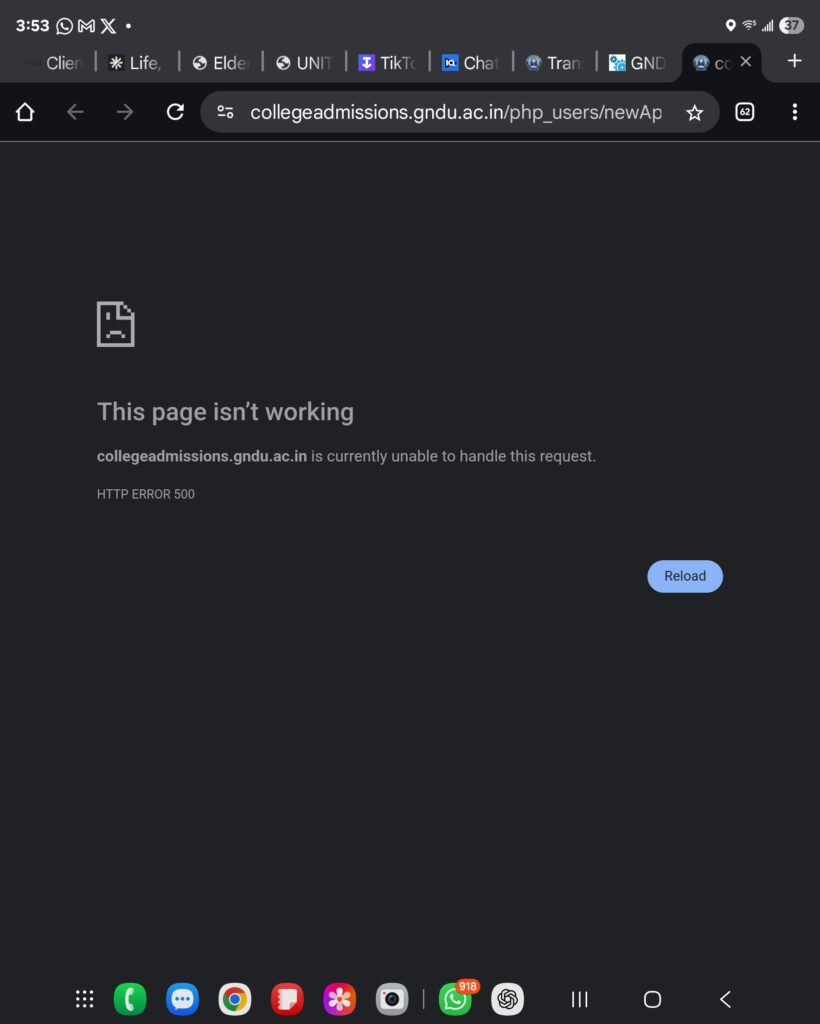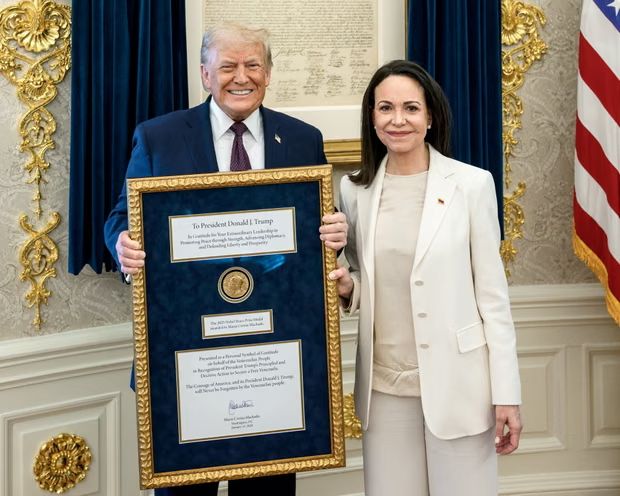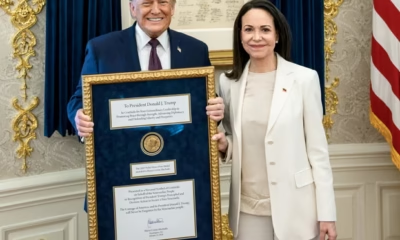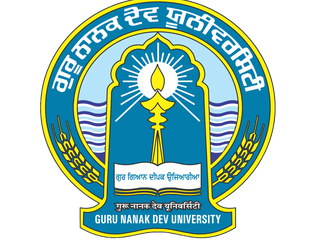Asia
PUTIN DEMANDS “SWIFT” CONNECTION BEFORE CEASEFIRE

Russian President Vladimir Putin has refused to implement the new ceasefire agreement in the Black Sea between Russia and Ukraine unless international sanctions on Russia are lifted.
Moscow has demanded access to global food and fertilizer markets and its reintegration into international banking systems as conditions for agreeing to a maritime truce with Ukraine.
The White House announced the ceasefire on Tuesday after 12 hours of talks between Russia and the US in Saudi Arabia on Monday, following a period of silence from both sides. However, shortly after the announcement, Moscow made it clear that the deal would only come into effect once sanctions restricting Russia are lifted, sanctions that have helped isolate the Kremlin since the invasion.
For weeks, Russia has been accused by Ukrainian President Volodymyr Zelensky and European allies of delaying peace talks. The discussions in Saudi Arabia came after a phone call between Putin and former President Donald Trump, where the Russian leader rejected a proposed 30-day ceasefire from the US and Ukraine.
While Zelensky insisted the deal would go into effect “immediately,” the Kremlin stated it would only proceed if sanctions were lifted. Specifically, Russia demanded the removal of restrictions on the Russian Agricultural Bank and other financial institutions involved in international food trade, along with their reconnection to the SWIFT international payment system.
Moscow suggested that Turkey, maintaining ties with both sides, could monitor the Black Sea situation, while a Middle Eastern country could oversee the energy agreement.
Zelensky warned that any movement of Russian warships beyond the “eastern part of the Black Sea” would be seen as a violation of the deal. He added, “If the Russians violate this, then I have a direct question for President Trump. If they violate, here is the evidence – we ask for sanctions, we ask for weapons.”

Asia
GNDU ਦੇ ਕਰਮਚਾਰੀਆਂ ਦੇ ਲਾਪਰਵਾਹੀ ਨਾਲ ਪੁਰਾਣੇ ਵਿਦਿਆਰਥੀਆਂ ਦੀ ਨੀਂਦ ਹਾਰਾਮ।

ਨਿਉਯਾਰਕ (NRI ਪੰਜਾਬੀ ਬਿਊਰੋ) ਗੁਰੂ ਨਾਨਕ ਦੇਵ ਜੀ ਯੂਨੀਵਰਸਿਟੀ ਦੇ ਆਈਟੀ ਡਿਪਾਰਟਮੈਂਟ ਦੇ ਵੱਲੋਂ ਲਗਾਤਾਰ ਖਾਮੀਆਂ ਦੇ ਕਰਕੇ ਵਿਦੇਸ਼ਾ ਵਿੱਚ ਵੱਸਦੇ ਆਮ ਸਟੂਡੈਂਟ ਨੂੰ ਵੱਡੀ ਮੁਸ਼ਕਿਲਾਂ ਦਾ ਸਾਹਮਣਾ ਕਰਨਾ ਪੈ ਰਿਹਾ ਵਿਦੇਸ਼ਾਂ ਵਿੱਚ ਵਸਦੇ ਸਟੂਡੈਂਟਾਂ ਨੂੰ ਆਪਣੀ ਪੜ੍ਹਾਈ ਨੂੰ ਅੱਗੇ ਵਧਾਉਣ ਵਾਸਤੇ ਯੂਨੀਵਰਸਿਟੀ ਵੱਲੋਂ ਆਨਲਾਈਨ ਟਰਾਂਸਕਿਪ ਨੂੰ ਸਰਟੀਫਾਈਡ ਕਰਾਉਣਾ ਹੀ ਇੱਕ ਤਰੀਕਾ ਹੁੰਦਾ ਲੇਕਿਨ ਗੁਰੂ ਨਾਨਕ ਦੇਵ ਯੂਨੀਵਰਸਿਟੀ ਦੀ ਵੈਬਸਾਈਟ ਉੱਤੇ ਇਸ ਵਿਭਾਗ ਨਾਲ ਜੁੜਿਆ ਪੇਜ ਪਿਛਲੇ https://collegeadmissions.gndu.ac.in/php_users/newApplication.php ਇੱਕ ਹਫਤੇ ਤੋਂ ਲਗਾਤਾਰ ਡਾਊਨ ਚੱਲ ਰਿਹਾ ਹੈ।

ਡਿਪਾਰਟਮੈਂਟ ਨੂੰ ਬਾਰ-ਬਾਰ ਫੋਨ ਕਰਨ ਤੇ ਇਹ ਪਤਾ ਲੱਗਦਾ ਹੈ ਕਿ ਡਿਪਾਰਟਮੈਂਟ ਨੂੰ ਪਤਾ ਹੈ ਕਿ ਵੈਬਸਾਈਟ ਡਾਊਨ ਹੈ ਜਦੋਂ ਉਹਨਾਂ ਨੂੰ ਪੁੱਛਿਆ ਜਾਂਦਾ ਹੈ ਕਿ ਕਿੰਨੇ ਚਿਰ ਬਾਅਦ ਇਹ ਠੀਕ ਹੋਏਗੀ ਤਾਂ ਉਹਨਾਂ ਵੱਲੋਂ ਇਹ ਕਿਹਾ ਜਾਂਦਾ ਕਿ ਸਾਨੂੰ ਤਾਂ ਪਤਾ ਨਹੀਂ ਕਦੋਂ ਠੀਕ ਹੋਏਗੀ ਤੁਸੀਂ ਕੋਸ਼ਿਸ਼ ਕਰਦੇ ਰਹੋ ਅਤੇ ਇਹ ਕੋਸ਼ਿਸ਼ ਹਫਤਿਆਂ ਤੋਂ ਲਗਾਤਾਰ ਜਾਰੀ ਹੈ।
ਗੁਰੂ ਨਾਨਕ ਦੇਵ ਯੂਨੀਵਰਸਿਟੀ ਦੇ ਆਈਟੀ ਵਿਭਾਗ ਦੀ ਸਭ ਤੋਂ ਵੱਡੀ ਮੁਸ਼ਕਿਲ ਇਹ ਵੀ ਹੈ ਕਿ ਇੱਥੇ ਦੋ ਤਰੀਕੇ ਦੀ ਐਕਸਚੇਂਜ ਚੱਲਦੀਆਂ ਹਨ। ਵੈਬਸਾਈਟ ਦੇ ਉੱਤੇ ਨੰਬਰਾਂ ਦੇ ਮੁਤਾਬਿਕ ਜਿਹੜੇ ਨੰਬਰ ਹਨ ਉਹ ਆਟੋਮੈਟਿਕ ਐਕਸਚੇਂਜ ਨੂੰ ਜੁੜੇ ਹੋਏ ਹਨ । ਪਰ ਉਹ ਐਕਸਚੇਂਜ ਵਿਦੇਸ਼ ਤੋਂ ਆਏ ਫੋਨ ਕਾਲ ਨੂੰ ਅੱਗੇ ਟਰਾਂਸਫਰ ਕਰਨ ਤੋਂ ਅਸਮਰਥ ਹੈ ਅਤੇ ਜੇਕਰ ਤੁਸੀਂ ਪੁਰਾਣੇ ਨੰਬਰਾਂ ਦੇ ਉੱਤੇ ਡਾਇਲ ਕਰਦੇ ਹੋ ਤਾਂ ਉਸ ਨੂੰ ਚੁੱਕਣ ਵਾਲੇ ਅਪਰੇਟਰ ਕਹਿੰਦੇ ਨੇ ਕਿ ਉਹ ਅਸਮਰਥ ਨੇ ਕਿਉਂਕਿ ਉਹਨਾਂ ਕੋਲ ਹੁਣ ਅੱਗੇ ਟਰਾਂਸਫਰ ਕਰਨ ਵਾਸਤੇ ਸਿਸਟਮ ਹੀ ਨਹੀਂ ਹੈ।
ਉਹ ਨੰਬਰ ਦੇਖ ਕੇ ਦੱਸਦੇ ਨੇ ਕਿ ਤੁਸੀਂ ਪਲੀਜ਼ ਇਸ ਨੰਬਰ ਤੇ ਉੱਤੇ ਸਿੱਧਾ ਸੰਪਰਕ ਕਰੋ। ਵਿਦਿਆਰਥੀ ਜਦੋਂ ਆਪਣੇ ਜੋੜ ਤੋੜ ਕਰਕੇ ਕੋਈ ਨਾ ਕੋਈ ਲਿੰਕ ਲੱਭਦੇ ਹਨ ਤਾਂ ਵਿਭਾਗ ਦੇ ਵੱਡੇ ਅਧਿਕਾਰੀ ਉਸ ਦਿਨ ਇਹ ਦੱਸਦੇ ਨੇ ਕਿ ਮੈਂ ਬਾਹਰ ਤੁਸੀਂ ਇਸ ਵਿਅਕਤੀ ਨਾਲ਼ ਗੱਲ ਕਰ ਲਵੋਂ ਜਦੋਂ ਉਸ ਵਿਅਕਤੀ ਨਾਲ ਗੱਲ ਕਰਨ ਦੀ ਕੋਸ਼ਿਸ਼ ਕੀਤੀ ਜਾਂਦੀ ਹੈ ਤਾਂ ਉਹ ਦੱਸਦਾ ਕਿ ਮੈਂ ਵੀ ਬਾਹਰ ਤੁਸੀਂ ਇਸ ਤੀਸਰੇ ਵਿਅਕਤੀ ਨਾਲ ਗੱਲ ਕਰ ਲਵੋਂ। ਇਸ ਤਰ੍ਹਾਂ ਇਸ ਦੇ ਵਿੱਚ ਹੀ ਇੱਕ ਦਿਹਾੜੀ ਨਿਕਲ ਜਾਂਦੀ ਹੈ ਤਾਂ ਵਿਦਿਆਰਥੀ ਨੂੰ ਫਿਰ ਅਗਲੇ ਦਿਨ ਵਾਸਤੇ ਇੰਤਜ਼ਾਰ ਕਰਨਾ ਪੈਂਦਾ।
ਜਿੱਥੇ ਅਕਸਰ ਵਿਦੇਸ਼ਾਂ ਵਿੱਚ ਵੱਸਦੇ ਸਟੂਡੈਂਟ ਇਹ ਮਾਣ ਮਹਿਸੂਸ ਕਰਦੇ ਹਨ ਕਿ ਉਹ ਪਹਿਲੇ ਪਾਤਸ਼ਾਹ ਧੰਨ ਧੰਨ ਸ੍ਰੀ ਗੁਰੂ ਨਾਨਕ ਦੇਵ ਜੀ ਦੇ ਨਾਮ ਦੇ ਉੱਤੇ ਬਣੀ ਯੂਨੀਵਰਸਿਟੀ ਦੇ ਵਿੱਚੋਂ ਪੜ੍ਹੇ ਹੋਏ ਹਨ ਉੱਥੇ ਹੀ ਜਦੋਂ ਇਸ ਤਰੀਕੇ ਦੀਆਂ ਚੁਣੌਤੀਆਂ ਦਾ ਸਾਹਮਣਾ ਕਰਨਾ ਪੈਂਦਾ ਹੈ ਤਾਂ ਉਹ ਦਰਪੇਸ਼ ਆਉਣ ਵਾਲੀਆਂ ਮੁਸ਼ਕਿਲਾਂ ਤੇ ਮੱਥੇ ਉੱਤੇ ਹੱਥ ਮਾਰ ਸੋਚਣ ਲਈ ਮਜਬੂਰ ਹੋ ਜਾਂਦੇ ਹਨ।
Instructions For Applying e-Transcript/Verification on GNDU Portal ਲਿੰਕ ਪਿਛਲੇ ਕਈ ਹਫਤਿਆਂ ਤੋਂ ਕੰਮ ਨਹੀਂ ਕਰ ਰਿਹਾ ਅਤੇ ਆਪਣਾ ਜੋੜ ਤੋੜ ਲਾ ਕੇ ਇਸ ਵਿਭਾਗ ਨਾਲ ਜੁੜੇ ਵੱਡੇ ਅਧਿਕਾਰੀਆਂ ਦੇ ਪਰਸਨਲ ਨੰਬਰਾਂ ਦੇ ਉੱਤੇ ਫੋਨ ਕਰਨ ਤੋਂ ਪਤਾ ਲੱਗਦਾ ਹੈ ਕਿ ਸਰਦਾਰ ਅਜਮੇਰ ਸਿੰਘ ਇਸ ਵਿਭਾਗ ਨੂੰ ਹੈਡ ਕਰਦੇ ਨੇ ਲੇਕਿਨ ਉਹ ਕਿਸੇ ਜ਼ਰੂਰੀ ਕੰਮ ਕਾਰਨ ਕਰਕੇ ਡਿਪਾਰਟਮੈਂਟ ਤੋਂ ਬਾਹਰ ਨੇ ਤੇ ਉਹਨਾਂ ਵੱਲੋਂ ਇੱਕ ਹੋਰ ਵਿਅਕਤੀ ਨੀਰਜ ਕੁਮਾਰ ਦਾ ਨੰਬਰ ਦਿੱਤਾ ਜਾਂਦਾ ਹੈ । ਨੀਰਜ ਕੁਮਾਰ ਨੂੰ ਜਦੋਂ ਉਹਨਾਂ ਦੇ ਪਰਸਨਲ ਨੰਬਰ ਦੇ ਉੱਤੇ ਫੋਨ ਕੀਤਾ ਜਾਂਦਾ ਤੇ ਪਹਿਲਾਂ ਤੋਂ ਇਹ ਮੰਨਣ ਨੂੰ ਤਿਆਰ ਹੀ ਨਹੀਂ ਹੁੰਦੇ ਕਿ ਵੈਬਸਾਈਟ ਕੰਮ ਨਹੀਂ ਕਰਦੀ ਅਤੇ ਫਿਰ ਜਦੋਂ ਮੰਨ ਲੈਂਦੇ ਨੇ ਕਿ ਹਾਂ ਵੈਬਸਾਈਟ ਪਿਛਲੇ ਇੱਕ ਹਫਤੇ ਤੋਂ ਕੰਮ ਨਹੀਂ ਕਰ ਰਹੀ ਸੀ ਅਤੇ ਪਰ ਫਿਰ ਵੀ ਕਹਿੰਦੇ ਕਿ ਕੁਝ ਸਮੇਂ ਬਾਅਦ ਤੁਹਾਨੂੰ ਲਿੰਕ ਠੀਕ ਕਰਵਾਉਂਦਾ ਹਾਂ ਪਰ ਦਰਜਨਾਂ ਕੋਸ਼ਿਸ਼ਾਂ ਤੋਂ ਬਾਅਦ ਵੀ ਲਿੰਕ ਕੰਮ ਨਹੀਂ ਕਰਦਾ । ਉਸ ਤੋਂ ਬਾਅਦ ਉਹ ਆਪਣਾ ਪਰਸਨਲ ਨੰਬਰ ਬੰਦ ਕਰ ਲੈਂਦੇ ਹਨ।
ਇਹ ਹਾਲ ਹੈ ਗੁਰੂ ਨਾਨਕ ਦੇਵ ਯੂਨੀਵਰਸਿਟੀ ਦੇ ਈ ਟਰਾਂਸਸਕਰੀਪਟ ਨੂੰ certifiy ਕਰਨ ਵਾਲੇ ਵਿਭਾਗ ਦਾ । ਵਿਦੇਸ਼ਾਂ ਦੇ ਵਿੱਚ ਬੈਠੇ ਲੋਕ ਆਪਣੇ ਇਸ ਜ਼ਰੂਰੀ ਕੰਮ ਨੂੰ ਠੀਕ ਤਰੀਕੇ ਨਾਲ ਕਰਾਉਣ ਦੇ ਲਈ ਰਾਤ ਦੇ ਤਿੰਨ-ਤਿੰਨ ਵਜੇ ਤੱਕ ਇਸ ਵਿਭਾਗ ਦੇ ਤਰਲੇ ਮਿਨਤਾਂ ਕਰਦੇ ਰਹਿੰਦੇ ਨੇ ਪਰ ਇਸ ਵਿਭਾਗ ਨੂੰ ਵੀ ਤਰਸ ਨਹੀਂ ਹੈ ਅਤੇ ਇਹ ਸਰਕਾਰੀ ਵਿਭਾਗ ਵਾਂਗ ਜਿੱਥੇ ਆਪਣੇ ਸਰਕਾਰੀ ਨੰਬਰ ਚੁੱਕਦਾ ਹੀ ਨਹੀਂ ਉੱਥੇ ਪ੍ਰਾਈਵੇਟ ਨੰਬਰ ਵੀ ਇਹੋ ਜਿਹੀ ਔਖੀ ਘੜੀ ਦੇ ਵਿੱਚ ਬੰਦ ਕਰਕੇ ਰੱਖ ਦਿੰਦੇ ਨੇ।
Asia
ਗ੍ਰੀਨਲੈਂਡ ਨੂੰ ਲੈ ਕੇ ਅਮਰੀਕਾ ਖ਼ਿਲਾਫ਼ ਆਏ ਦੇਸ਼ਾਂ ਤੇ ਟੈਰਿਫ਼ ਲਗਾਉਣ ਦੀ ਧੱਮਕੀ
ਅਮਰੀਕੀ ਰਾਸ਼ਟਰਪਤੀ ਡੋਨਾਲਡ ਟਰੰਪ ਨੇ ਗ੍ਰੀਨਲੈਂਡ ਨੂੰ ਆਪਣੇ ਕਬਜ਼ੇ ਵਿੱਚ ਲੈਣ ਦੀ ਯੋਜਨਾ ਦਾ ਵਿਰੋਧ ਕਰਨ ਵਾਲੇ ਦੇਸ਼ਾਂ ਖ਼ਿਲਾਫ਼ ਟੈਰਿਫ਼ (ਆਯਾਤ ਸ਼ੁਲਕ) ਲਗਾਉਣ ਦੀ ਧਮਕੀ ਦਿੱਤੀ ਹੈ। ਟਰੰਪ ਨੇ ਕਿਹਾ ਹੈ ਕਿ ਜੋ ਦੇਸ਼ ਉਸਦੀ ਗ੍ਰੀਨਲੈਂਡ ਨੂੰ ਅਮਰੀਕਾ ਵਿੱਚ ਸ਼ਾਮਲ ਕਰਨ ਦੀ ਯੋਜਨਾ ਨਾਲ “ਸਹਿਮਤ ਨਹੀਂ ਹੁੰਦੇ”, ਉਨ੍ਹਾਂ ’ਤੇ ਆਰਥਿਕ ਦਬਾਅ ਬਣਾਇਆ ਜਾ ਸਕਦਾ ਹੈ। ਇਸ ਬਿਆਨ ਨਾਲ ਯੂਰਪੀ ਦੇਸ਼ਾਂ, ਖ਼ਾਸ ਕਰਕੇ ਡੈਨਮਾਰਕ ਅਤੇ ਹੋਰ ਨਾਟੋ ਸਹਿਯੋਗੀਆਂ ’ਚ ਚਿੰਤਾ ਵਧ ਗਈ ਹੈ, ਜੋ ਪਹਿਲਾਂ ਹੀ ਇਸ ਯੋਜਨਾ ਦਾ ਖੁੱਲ੍ਹਾ ਵਿਰੋਧ ਕਰ ਰਹੇ ਹਨ।
ਪਿਛਲੇ ਇੱਕ ਹਫ਼ਤੇ ਦੌਰਾਨ ਹਾਲਾਤ ਹੋਰ ਵੀ ਤਣਾਅਪੂਰਨ ਹੋ ਗਏ, ਜਦੋਂ ਨਾਟੋ ਦੇ ਕਈ ਸਾਥੀ ਦੇਸ਼ਾਂ ਨੇ ਗ੍ਰੀਨਲੈਂਡ ਵਿੱਚ ਸੁਰੱਖਿਆ ਦੇ ਮੱਦੇਨਜ਼ਰ ਆਪਣੀਆਂ ਫੌਜੀ ਟੁਕੜੀਆਂ ਤਾਇਨਾਤ ਕੀਤੀਆਂ। ਗ੍ਰੀਨਲੈਂਡ, ਜੋ ਡੈਨਮਾਰਕ ਦੇ ਰਾਜ ਦਾ ਹਿੱਸਾ ਹੈ ਪਰ ਵੱਡੇ ਪੱਧਰ ’ਤੇ ਖ਼ੁਦਮੁਖ਼ਤਿਆਰ ਹੈ, ਰਣਨੀਤਿਕ ਤੌਰ ’ਤੇ ਆਰਕਟਿਕ ਖੇਤਰ ਵਿੱਚ ਬਹੁਤ ਅਹਿਮ ਮੰਨਿਆ ਜਾਂਦਾ ਹੈ। ਟਰੰਪ ਨੇ ਇਸ਼ਾਰਾ ਦਿੱਤਾ ਕਿ ਜੇ ਲੋੜ ਪਈ ਤਾਂ ਅਮਰੀਕਾ ਗ੍ਰੀਨਲੈਂਡ ’ਤੇ ਕਬਜ਼ਾ ਕਰਨ ਲਈ ਤਾਕਤ ਦੀ ਵਰਤੋਂ ਤੋਂ ਵੀ ਪਿੱਛੇ ਨਹੀਂ ਹਟੇਗਾ।
ਇਸ ਤੋਂ ਪਹਿਲਾਂ ਗ੍ਰੀਨਲੈਂਡ ਲਈ ਟਰੰਪ ਦੇ ਵਿਸ਼ੇਸ਼ ਦੂਤ ਜੈਫ਼ ਲੈਂਡਰੀ ਨੇ ਦਾਅਵਾ ਕੀਤਾ ਸੀ ਕਿ ਵਾਸ਼ਿੰਗਟਨ ਅਤੇ ਗ੍ਰੀਨਲੈਂਡ ਦਰਮਿਆਨ ਕੋਈ ਸਮਝੌਤਾ “ਹੋਣਾ ਹੀ ਚਾਹੀਦਾ ਹੈ ਅਤੇ ਹੋ ਕੇ ਰਹੇਗਾ।” ਇਹ ਬਿਆਨ ਉਸ ਸਮੇਂ ਆਇਆ, ਜਦੋਂ ਅਮਰੀਕੀ ਸੰਸਦ ਮੈਂਬਰਾਂ ਦਾ ਇੱਕ ਵਫ਼ਦ ਕੋਪਨਹੇਗਨ ਪਹੁੰਚਿਆ। ਇਸ ਦੌਰੇ ਨੂੰ ਡੈਨਮਾਰਕ ਅਤੇ ਗ੍ਰੀਨਲੈਂਡ ਪ੍ਰਤੀ ਸਮਰਥਨ ਦਾ ਪ੍ਰਦਰਸ਼ਨ ਮੰਨਿਆ ਜਾ ਰਿਹਾ ਹੈ।
ਜੈਫ਼ ਲੈਂਡਰੀ ਨੇ ਇਹ ਵੀ ਕਿਹਾ ਕਿ ਉਹ ਮਾਰਚ ਮਹੀਨੇ ਗ੍ਰੀਨਲੈਂਡ ਦਾ ਦੌਰਾ ਕਰਨ ਦੀ ਯੋਜਨਾ ਬਣਾ ਰਹੇ ਹਨ ਅਤੇ ਜ਼ੋਰ ਦਿੱਤਾ ਕਿ ਰਾਸ਼ਟਰਪਤੀ ਟਰੰਪ ਗ੍ਰੀਨਲੈਂਡ ਹਾਸਲ ਕਰਨ ਦੇ ਮਾਮਲੇ ਵਿੱਚ “ਬਿਲਕੁਲ ਗੰਭੀਰ” ਹਨ। ਉਨ੍ਹਾਂ ਮੁਤਾਬਕ, ਆਰਕਟਿਕ ਖੇਤਰ ਵਿੱਚ ਸੁਰੱਖਿਆ, ਕੁਦਰਤੀ ਸਰੋਤਾਂ ਅਤੇ ਭੂ-ਰਾਜਨੀਤਿਕ ਮਹੱਤਤਾ ਕਾਰਨ ਗ੍ਰੀਨਲੈਂਡ ਅਮਰੀਕਾ ਦੀ ਰਣਨੀਤੀ ਵਿੱਚ ਕੇਂਦਰੀ ਸਥਾਨ ਰੱਖਦਾ ਹੈ।
ਦੂਜੇ ਪਾਸੇ, ਯੂਰਪੀ ਦੇਸ਼ਾਂ ਅਤੇ ਨਾਟੋ ਸਾਥੀਆਂ ਨੇ ਟਰੰਪ ਦੀ ਇਸ ਯੋਜਨਾ ’ਤੇ ਗਹਿਰੀ ਨਾਰਾਜ਼ਗੀ ਜ਼ਾਹਰ ਕੀਤੀ ਹੈ ਅਤੇ ਕਿਹਾ ਹੈ ਕਿ ਕਿਸੇ ਵੀ ਖੇਤਰ ਨੂੰ ਜ਼ਬਰਦਸਤੀ ਆਪਣੇ ਵਿੱਚ ਸ਼ਾਮਲ ਕਰਨਾ ਅੰਤਰਰਾਸ਼ਟਰੀ ਕਾਨੂੰਨਾਂ ਅਤੇ ਲੋਕਤੰਤਰਿਕ ਮੁੱਲਾਂ ਦੇ ਖ਼ਿਲਾਫ਼ ਹੈ। ਇਸ ਮਾਮਲੇ ’ਤੇ ਆਉਣ ਵਾਲੇ ਦਿਨਾਂ ਵਿੱਚ ਅਮਰੀਕਾ ਅਤੇ ਯੂਰਪ ਦਰਮਿਆਨ ਤਣਾਅ ਹੋਰ ਵਧਣ ਦੀ ਸੰਭਾਵਨਾ ਜਤਾਈ ਜਾ ਰਹੀ ਹੈ।
Asia
ਮਾਚਾਦੋ ਵੱਲੋਂ ਅਮਰੀਕੀ ਰਾਸ਼ਟਰਪਤੀ ਡੋਨਾਲਡ ਟਰੰਪ ਨੂੰ ਆਪਣਾ ਨੋਬਲ ਪੀਸ ਮੈਡਲ ਭੇਟ।

ਵਾਸ਼ਿੰਗਟਨ: ਨਾਰਵੇ ਦੇ ਸਿਆਸੀ ਆਗੂਆਂ ਨੇ ਵੈਨੇਜ਼ੂਏਲਾ ਦੀ ਵਿਰੋਧੀ ਨੇਤਾ ਅਤੇ ਨੋਬਲ ਸ਼ਾਂਤੀ ਇਨਾਮ ਜੇਤੂ ਮਾਰੀਆ ਕੋਰੀਨਾ ਮਚਾਡੋ ਵੱਲੋਂ ਆਪਣਾ ਨੋਬਲ ਸ਼ਾਂਤੀ ਇਨਾਮ ਦਾ ਮੈਡਲ ਅਮਰੀਕਾ ਦੇ ਰਾਸ਼ਟਰਪਤੀ ਡੋਨਾਲਡ ਟਰੰਪ ਨੂੰ ਸੌਂਪਣ ਦੇ ਫ਼ੈਸਲੇ ਦੀ ਤਿੱਖੀ ਪ੍ਰੀਤਕਰਿਆ ਸਾਹਮਣੇ ਆਈ ਹੈ। ਨਾਰਵੇ ਦੇ ਨੇਤਾਵਾਂ ਨੇ ਇਸ ਕਦਮ ਨੂੰ “ਬੇਤੁਕਾ” ਦੱਸਿਆ ਹੈ।

ਮਾਰੀਆ ਕੋਰੀਨਾ ਮਚਾਡੋ ਨੇ ਵੀਰਵਾਰ ਨੂੰ ਵਾਈਟ ਹਾਊਸ ਵਿੱਚ ਡੋਨਾਲਡ ਟਰੰਪ ਨੂੰ ਆਪਣਾ ਨੋਬਲ ਸ਼ਾਂਤੀ ਇਨਾਮ ਮੈਡਲ ਭੇਟ ਕੀਤਾ। ਉਨ੍ਹਾਂ ਕਿਹਾ ਕਿ ਇਹ ਮੈਡਲ ਉਹ ਟਰੰਪ ਨੂੰ “ਸਾਡੀ ਆਜ਼ਾਦੀ ਲਈ ਉਨ੍ਹਾਂ ਦੀ ਵਿਲੱਖਣ ਵਚਨਬੱਧਤਾ ਦੀ ਪਹਿਚਾਣ” ਵਜੋਂ ਦੇ ਰਹੀ ਹਨ। ਇਸ ਤੋਂ ਕੁਝ ਘੰਟਿਆਂ ਬਾਅਦ ਟਰੰਪ ਨੇ ਆਪਣੇ ਸੋਸ਼ਲ ਮੀਡੀਆ ਪਲੇਟਫਾਰਮ ‘ਟਰੂਥ ਸੋਸ਼ਲ’ ’ਤੇ ਲਿਖਿਆ ਕਿ ਮਚਾਡੋ ਨੇ “ਮੇਰੇ ਕੀਤੇ ਕੰਮ ਲਈ ਆਪਣਾ ਨੋਬਲ ਸ਼ਾਂਤੀ ਇਨਾਮ ਮੈਨੂੰ ਪੇਸ਼ ਕੀਤਾ ਹੈ,” ਅਤੇ ਇਸਨੂੰ ਪਰਸਪਰ ਸਨਮਾਨ ਦੀ ਸ਼ਾਨਦਾਰ ਮਿਸਾਲ ਕਰਾਰ ਦਿੱਤਾ।
ਹਾਲਾਂਕਿ, ਨੋਬਲ ਪੀਸ ਸੈਂਟਰ ਨੇ ਸਪਸ਼ਟ ਕੀਤਾ ਹੈ ਕਿ ਮੈਡਲ ਦੀ ਮਾਲਕੀ ਬਦਲੀ ਜਾ ਸਕਦੀ ਹੈ, ਪਰ ਨੋਬਲ ਸ਼ਾਂਤੀ ਇਨਾਮ ਦੇ ਜੇਤੂ ਹੋਣ ਦਾ ਸਨਮਾਨ ਕਿਸੇ ਹੋਰ ਨੂੰ ਸੌਂਪਿਆ ਨਹੀਂ ਜਾ ਸਕਦਾ। ਨਾਰਵੇਜਨ ਨੋਬਲ ਕਮੇਟੀ ਅਤੇ ਨੋਬਲ ਇੰਸਟੀਚਿਊਟ ਪਹਿਲਾਂ ਹੀ ਇਹ ਸਪਸ਼ਟ ਕਰ ਚੁੱਕੇ ਹਨ ਕਿ ਨੋਬਲ ਇਨਾਮ ਨੂੰ ਨਾ ਤਾਂ ਰੱਦ ਕੀਤਾ ਜਾ ਸਕਦਾ ਹੈ, ਨਾ ਸਾਂਝਾ ਅਤੇ ਨਾ ਹੀ ਕਿਸੇ ਹੋਰ ਨੂੰ ਟਰਾਂਸਫਰ ਕੀਤਾ ਜਾ ਸਕਦਾ ਹੈ।
ਜ਼ਿਕਰਯੋਗ ਹੈ ਕਿ ਮਾਰੀਆ ਕੋਰੀਨਾ ਮਚਾਡੋ ਨੂੰ ਪਿਛਲੇ ਮਹੀਨੇ ਓਸਲੋ ਵਿੱਚ ਨੋਬਲ ਸ਼ਾਂਤੀ ਇਨਾਮ ਨਾਲ ਸਨਮਾਨਿਤ ਕੀਤਾ ਗਿਆ ਸੀ। ਉਸ ਸਮੇਂ ਨੋਬਲ ਕਮੇਟੀ ਨੇ ਵੈਨੇਜ਼ੂਏਲਾ ਵਿੱਚ ਰਾਸ਼ਟਰਪਤੀ ਨਿਕੋਲਾਸ ਮਾਦੂਰੋ ਦੀ “ਕਠੋਰ ਅਤੇ ਤਾਨਾਸ਼ਾਹ ਸਰਕਾਰ” ਦੇ ਖ਼ਿਲਾਫ਼ ਲੋਕਤੰਤਰ ਲਈ ਮਚਾਡੋ ਦੀ ਲੰਬੀ ਸੰਘਰਸ਼ ਯਾਤਰਾ ਦੀ ਸਿਰਾਹਨਾ ਕੀਤੀ ਸੀ।
ਇਸ ਘਟਨਾ ਤੋਂ ਬਾਅਦ ਮਚਾਡੋ ਵੱਲੋਂ ਨੋਬਲ ਮੈਡਲ ਟਰੰਪ ਨੂੰ ਸੌਂਪਣ ਦੇ ਫ਼ੈਸਲੇ ਨੇ ਅੰਤਰਰਾਸ਼ਟਰੀ ਪੱਧਰ ’ਤੇ ਨਵਾਂ ਸਿਆਸੀ ਵਿਵਾਦ ਖੜ੍ਹਾ ਕਰ ਦਿੱਤਾ ਹੈ, ਜਿਸ ’ਤੇ ਨਾਰਵੇ ਸਮੇਤ ਕਈ ਦੇਸ਼ਾਂ ਵਿੱਚ ਸਵਾਲ ਉਠਾਏ ਜਾ ਰਹੇ ਹਨ।
ਪਿਛਲੇ ਸਾਲ ਓਸਲੋ ਵਿੱਚ ਮਾਰੀਆ ਕੋਰੀਨਾ ਮਾਚਾਦੋ ਨੂੰ ਨੋਬਲ ਸ਼ਾਂਤੀ ਇਨਾਮ ਨਾਲ ਸਨਮਾਨਿਤ ਕੀਤਾ ਗਿਆ ਸੀ। ਇਸ ਮੌਕੇ ਉਹ ਵੈਨੇਜ਼ੂਏਲਾ ਤੋਂ ਇੱਕ ਗੁਪਤ ਅਤੇ ਨਾਟਕੀ ਯਾਤਰਾ ਕਰਕੇ ਨਾਰਵੇ ਪਹੁੰਚੀ ਸੀ। ਨੋਬਲ ਕਮੇਟੀ ਨੇ ਇਨਾਮ ਦਿੰਦਿਆਂ ਮਾਚਾਦੋ ਦੀ ਵੈਨੇਜ਼ੂਏਲਾ ਵਿੱਚ ਲੋਕਤੰਤਰ ਦੀ ਬਹਾਲੀ ਲਈ ਲੰਬੀ ਸੰਘਰਸ਼ ਯਾਤਰਾ ਦੀ ਪ੍ਰਸ਼ੰਸਾ ਕੀਤੀ ਅਤੇ ਰਾਸ਼ਟਰਪਤੀ ਨਿਕੋਲਾਸ ਮਾਦੂਰੋ ਦੀ ਸਰਕਾਰ ਨੂੰ “ਕਠੋਰ ਅਤੇ ਤਾਨਾਸ਼ਾਹੀ ਰਾਜ” ਕਰਾਰ ਦਿੱਤਾ ਸੀ।
ਇਸ ਤੋਂ ਬਾਅਦ ਦੇ ਘਟਨਾਕ੍ਰਮ ਵਿੱਚ ਅਮਰੀਕੀ ਰਾਸ਼ਟਰਪਤੀ ਡੋਨਾਲਡ ਟਰੰਪ ਵੱਲੋਂ ਵੈਨੇਜ਼ੂਏਲਾ ’ਚ ਅਮਰੀਕੀ ਫ਼ੌਜਾਂ ਭੇਜ ਕੇ ਰਾਸ਼ਟਰਪਤੀ ਨਿਕੋਲਾਸ ਮਾਦੂਰੋ ਅਤੇ ਉਸ ਦੀ ਪਤਨੀ ਨੂੰ ਗ੍ਰਿਫ਼ਤਾਰ ਕਰਕੇ ਨਿਊਯਾਰਕ ਲਿਆਂਦਾ ਸੀ। ਇਸ ਵੇਲ਼ੇ ਵੈਨੇਜ਼ੂਏਲਾ ਦੀ ਕਮਾਨ ਵੈਨੇਜ਼ੂਏਲਾ ਦੀ ਉਪ-ਰਾਸ਼ਟਰਪਤੀ ਡੈਲਸੀ ਰੋਡਰੀਗਜ਼ ਦੇ ਹਵਾਲੇ ਹੈ।
ਵਾਈਟ ਹਾਊਸ ਵੱਲੋਂ ਸਾਂਝੀ ਕੀਤੀ ਗਈ ਇੱਕ ਤਸਵੀਰ ਵਿੱਚ ਮਾਰੀਆ ਕੋਰੀਨਾ ਮਾਚਾਦੋ ਅਮਰੀਕੀ ਰਾਸ਼ਟਰਪਤੀ ਡੋਨਾਲਡ ਟਰੰਪ ਨੂੰ ਨੋਬਲ ਪੀਸ ਮੈਡਲ ਇੱਕ ਵੱਡੇ ਸੁਨਹਿਰੀ ਫਰੇਮ ਵਿੱਚ ਸਜ਼ਾ ਕੇ ਦਿੱਤਾ ਗਿਆ । ਫਰੇਮ ਨਾਲ ਲੱਗੇ ਲਿਖਤ ਵਿੱਚ ਕਿਹਾ ਗਿਆ ਹੈ ਕਿ ਇਹ ਤੋਹਫ਼ਾ “ਵੈਨੇਜ਼ੂਏਲਾ ਦੇ ਲੋਕਾਂ ਵੱਲੋਂ ਨਿੱਜੀ ਤੌਰ ’ਤੇ ਧੰਨਵਾਦ ਦੇ ਪ੍ਰਤੀਕ ਵਜੋਂ, ਰਾਸ਼ਟਰਪਤੀ ਟਰੰਪ ਦੀ ਆਜ਼ਾਦ ਵੈਨੇਜ਼ੂਏਲਾ ਯਕੀਨੀ ਬਣਾਉਣ ਲਈ ਕੀਤੀ ਗਈ ਸਿਧਾਂਤਕ ਅਤੇ ਨਿਰਣਾਇਕ ਕਾਰਵਾਈ ਦੀ ਸਵੀਕਾਰਤਾ ਵਿੱਚ ਭੇਟ ਕੀਤਾ ਗਿਆ ਹੈ।”













